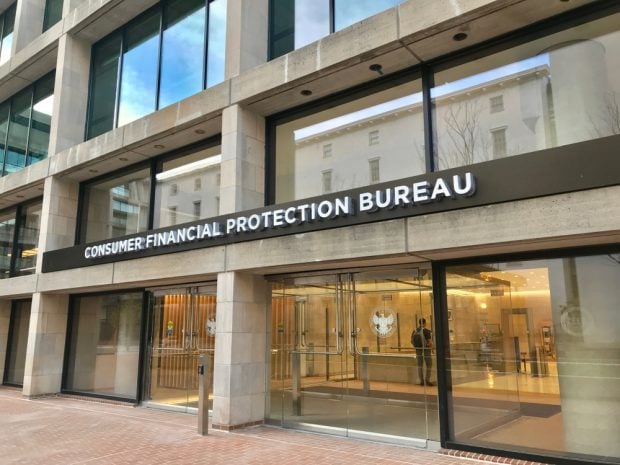 CFPB headquarters in Washington, D.C. (Source: Shutterstock)
CFPB headquarters in Washington, D.C. (Source: Shutterstock)
A three-judge panel of the 5th U.S. Circuit Court ruled late Wednesday that the CFPB's funding structure is "uniquely unconstitutional" in that the bureau receives its funding through the Federal Reserve instead of the congressional appropriations process other federal agencies are required to adhere to.
The ruling is considered a victory for lenders and many financial institutions that have been against the CFPB's regulatory authority since its inception in 2010, believing that the structure was unconstitutional.
Recommended For You
The panel of judges found placing the CFPB's funding outside of the congressional appropriations process violates the constitutional structure of separation of powers. Other federal financial regulators, such as the NCUA, must go through Congress to receive funding.
In the court's ruling, Judge Cory Wilson wrote, "Even among self-funded agencies, the Bureau is unique. The Bureau's perpetual self-directed, double-insulated funding structure goes a significant step further than that enjoyed by the other agencies on offer."
The judges also wrote, "An expansive executive agency insulated (no, double-insulated) from Congress's purse strings, expressly exempt from budgetary review, and headed by a single Director removable at the President's pleasure is the epitome of the unification of the purse and the sword in the executive — an abomination the Framers warned 'would destroy that division of powers on which political liberty is founded.'"
In a statement Wednesday night, CUNA President/CEO Jim Nussle said, "The court's decision today is consistent with CUNA's longstanding position that CFPB funding go through the standard appropriations process. It's been clear this is the most appropriate avenue since the very start of the CFPB, as it would provide additional congressional oversight and incentivize the bureau to focus its attention on bad actors causing real harm to consumers."
The judges also vacated the CFPB's 2017 small-dollar lending rule, which the Plaintiffs in the case argued was issued unlawfully.
A statement from NAFCU read, "In addition, using the payday rule as an example, the Court agreed that the Plaintiffs had clearly showed the unconstitutional funding of the CFPB has inflicted harm.
"The Court ruled that the payday lending rule issued by the CFPB is invalid not because the CFPB lacked the authority to write it, but because it was promulgated using unconstitutionally granted funds."
It's unclear at this time if the CFPB will appeal the ruling.
© Touchpoint Markets, All Rights Reserved. Request academic re-use from www.copyright.com. All other uses, submit a request to [email protected]. For more inforrmation visit Asset & Logo Licensing.







